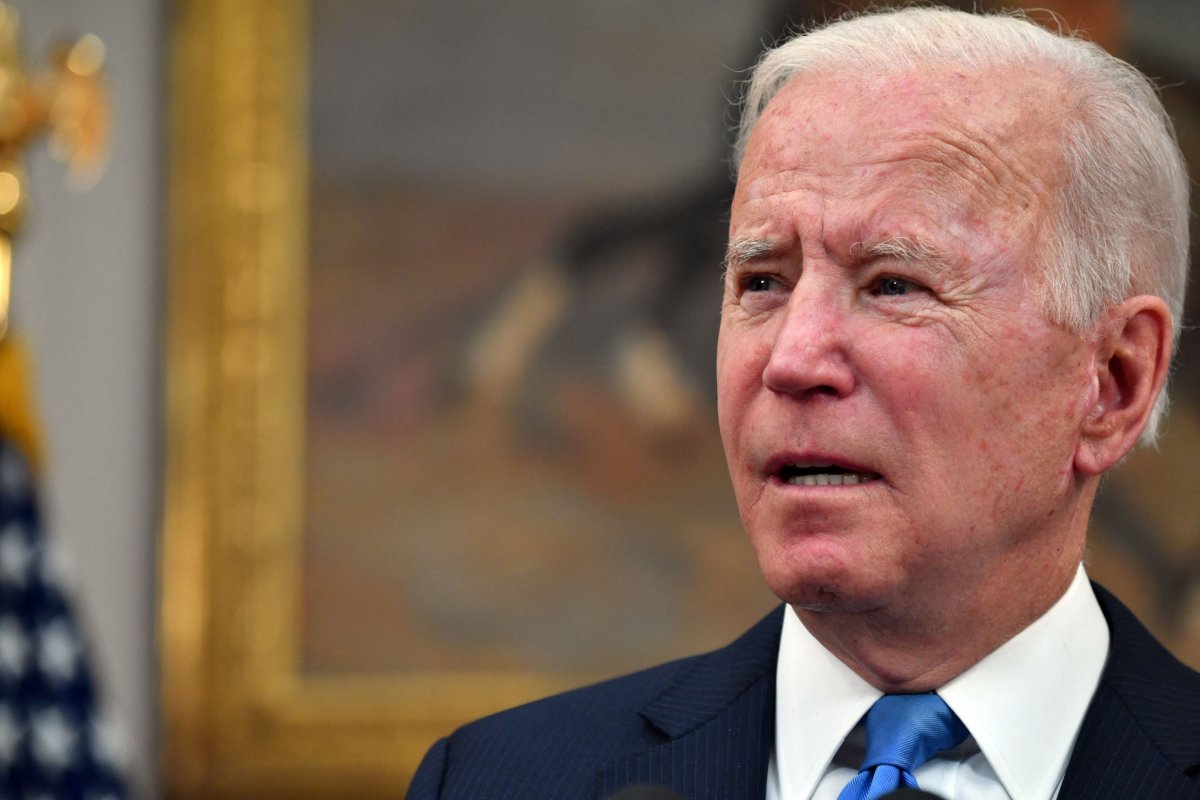When President Joe Biden outlined his legislative priorities during his first address to Congress last month, notably absent was a major campaign promise: a public health insurance option. Instead, his current health reform proposal will funnel $200 billion more to private insurance companies to subsidize premiums, without any requirement that they cap out-of-pocket costs or eliminate them altogether.
As a result of Biden's approach, states have been left to introduce public option legislation themselves, in the process taking on some of the nation's largest and most politically organized businesses. From coast to coast, health insurance companies, hospitals, and pharmaceutical companies are using every tactic at their disposal to block states from passing public option legislation.
Such efforts show how determined the industry is to block any sort of reform that threatens its massive profits.
In particular, the Partnership for America's Health Care Future Action (PAHCF Action), the state arm of the dark money group that has opposed Medicare for All and a public option at the federal level, has spent millions of dollars on TV ads and mailers in Colorado, Connecticut, and other states where public option bills are being considered. The group has spent more on lobbying in Colorado in 2021 than any other organization since 2011, and possibly ever.
As a result, the actual public option component of the Colorado legislation was removed in an agreement made with the hospital industry. What's left of the bill is a requirement that private insurers offer so-called "standardized" health insurance plans and cut premiums on those plans by 18 percent over three years. Despite the overhaul, the industry has continued to oppose the plan.

"It's a little intriguing to me that this is becoming such a big deal, because the bill is actually very narrow," Rep. Dylan Roberts, the lead sponsor of the Colorado legislation, told The Daily Poster/Newsweek, before the bill was watered down. He added, "It's not a total overhaul of the health care system in Colorado or in the United States by any means. So the opposition to me is a little intriguing on that front."
Lobbyists gut Colorado option
In Colorado, PAHCF Action is smashing state lobbying records by spending millions of dollars to kill its public option proposal. The organization is running a full-scale advocacy campaign, blanketing the television airwaves and filling people's mailboxes with propaganda.
While PAHCF Action's donors are not public, its board includes top executives from lobbying groups for investor-owned hospital chains and health insurers.
The organization's president is Chip Kahn, who leads the Federation of American Hospitals. His group lobbies for hospital chains like HCA Healthcare and Tenet Healthcare.
HCA reported $3.5 billion in profit last year, and its CEO made $83.6 million, according to Axios. The hospital chain owns seven hospitals in Colorado, including one that drew national headlines in 2019 for billing an emergency room patient more than $12,000 to treat a hangover after his bachelor party.
While HCA does not disclose its political contributions, Tenet has reported donating nearly $2.9 million to PAHCF between 2018 and 2020, according to company political spending disclosures. Tenet has a dozen surgery centers in Colorado, according to its website.
PAHCF Action's secretary is David Merritt, a senior executive at America's Health Insurance Plans (AHIP), which lobbies for big health insurers like Aetna.
CVS Health, which owns Aetna, donated $5 million last year to the national Partnership for America's Health Care Future (PAHCF), according to reporting by The Intercept.
The dark money group isn't alone 149 individual lobbyists in the state are registered as opposing the legislation. These lobbyists represent AHIP, Anthem Blue Cross and Blue Shield, Cigna, UnitedHealth Group, and Kaiser Permanente, among other corporate interests. Americans for Prosperity, the Koch network's political advocacy arm, has 16 lobbyists alone registered in opposition of the bill.
These influence peddlers have already had significant success. Last year, lobbyists helped kill a public option proposal in the state. This year, legislators proposed a scaled-down version of the public option plan, one that would allow the state to set up a public option in two years if private insurers failed to set up standardized plans that meet certain cost criteria.
But even this legislation was derailed by special-interest groups. In late April, lawmakers removed the public-option component from the bill following negotiations with insurance industry lobbying groups and the Service Employees International Union (SEIU) of Colorado, which opposed the bill. The SEIU Local 105 argued that the premium-cutting measures in the legislation would lead to layoffs of health care workers at hospitals.
"Even as the bill has changed, they've had the same generic talking points about a government takeover of health care that doesn't reflect what's actually in the bill," Roberts said.
The health care industry still opposes the bill, even in its weakened state.
On May 12, two days after the modified bill passed the Colorado House, the Taxpayers Protection Alliance (TPA), a Koch-affiliated political advocacy group, announced an "ad blitz" to oppose the legislation as it moves forward. Their so-called "No Big Handouts for Big Insurance" campaign will involve a statewide ad campaign targeting the rate-setting element of the legislation, according to a TPA press release.
The idea that big insurers would benefit from the legislation is more than a little dubious, given that health insurance lobbyists are helping lead the campaign to kill it.
Standoff in the insurance capital
Connecticut has long been a flashpoint in the battle over a public option. Hartford, the state capital, is known as the "Insurance Capital of the World," because a number of the world's largest insurance companies—Cigna, The Hartford, Chubb, and until recently Aetna—are headquartered there, and are also major employers.
The industry has used its presence in the state as leverage to kill public option efforts. In 2019, Cigna reportedly threatened to leave if the state passed public option legislation. Between that threat and a massive lobbying effort by the insurance industry against the legislation, the bill never passed.

Now the industry is doing it again. Last month, the CEOs of Anthem, Cigna, CVSHealth, Tufts Health Plan, Harvard Pilgrim Health Care, and UnitedHealth Group wrote a letter to Connecticut Gov. Ned Lamont, thanking him for opposing the legislature's public option legislation and implicitly threatening to leave the state if it passes.
"The pandemic has demonstrated that employees can work virtually, making it easier for companies to choose where they are domiciled and grow," the letter said. "As a result, it has never been more critical for the State to create a climate that retains and attracts businesses that will help stabilize the economy. All of us will have to decide where it will be best to deploy our resources long term. Private employers and taxpayers should not fund unsustainable public policy pursuits." (When CVS acquired Aetna in 2018, it promised to keep Aetna headquartered in Hartford for at least a decade, and retain its staffing levels at least until 2022.)
UnitedHealth Group, whose CEO signed the letter to Lamont, held a webinar in February to train its employees to lobby against the legislation, The Daily Poster previously reported. According to the PAHCF Action's first quarter lobbying report in Connecticut, the group has spent roughly $126,000 on lobbying so far this year, including about $95,000 on compensation and $31,000 on solicitations.
Beyond PAHCF Action, health insurance companies and businesses are also engaged in lobbying through other front groups or direct lobbying on the public option legislation.
The Connecticut Hospital Association, whose members include dozens of hospitals as well as insurance companies such as Anthem Blue Cross & Blue Shield and Harvard Pilgrim Health Care, has spent $296,000 on lobbying during the first quarter of this year, according to state filings.
Meanwhile, the Connecticut Association of Health Plans has spent $133,000 on lobbying and $1,200 on paid media during the first quarter of this year, according to state filings. The group's president is Tim Meyers of Aetna, the insurance giant owned by CVS, and its treasurer and secretary work in government relations for ConnectiCare and Harvard Pilgrim Health Care, respectively.
The opposition's talking points don't reflect what the bill would actually do, says Tom Swan, the executive director of the Connecticut Citizen Action Group, a group advocating for the public option legislation. "A lot of their campaign is just railing against a bill that doesn't exist," Swan said.
"They're saying, 'don't let them do a one-size-fits-all health insurance option,'" said Swan, who added that in truth, the bill includes multiple different public-option plans and does not interfere with the private insurance industry's capacity to operate.
Without action on health care at the federal level, more states may try to take on the health care industry and its national advocacy groups themselves.
Nevada, a state with one of the highest uninsured rates in the nation, recently introduced its own public option bill—and PAHCF Action immediately launched an operation to kill it.
This is the third in a multi-part series on state-level health care reform. Read the other stories here and here.
Uncommon Knowledge
Newsweek is committed to challenging conventional wisdom and finding connections in the search for common ground.
Newsweek is committed to challenging conventional wisdom and finding connections in the search for common ground.
About the writer
To read how Newsweek uses AI as a newsroom tool, Click here.








